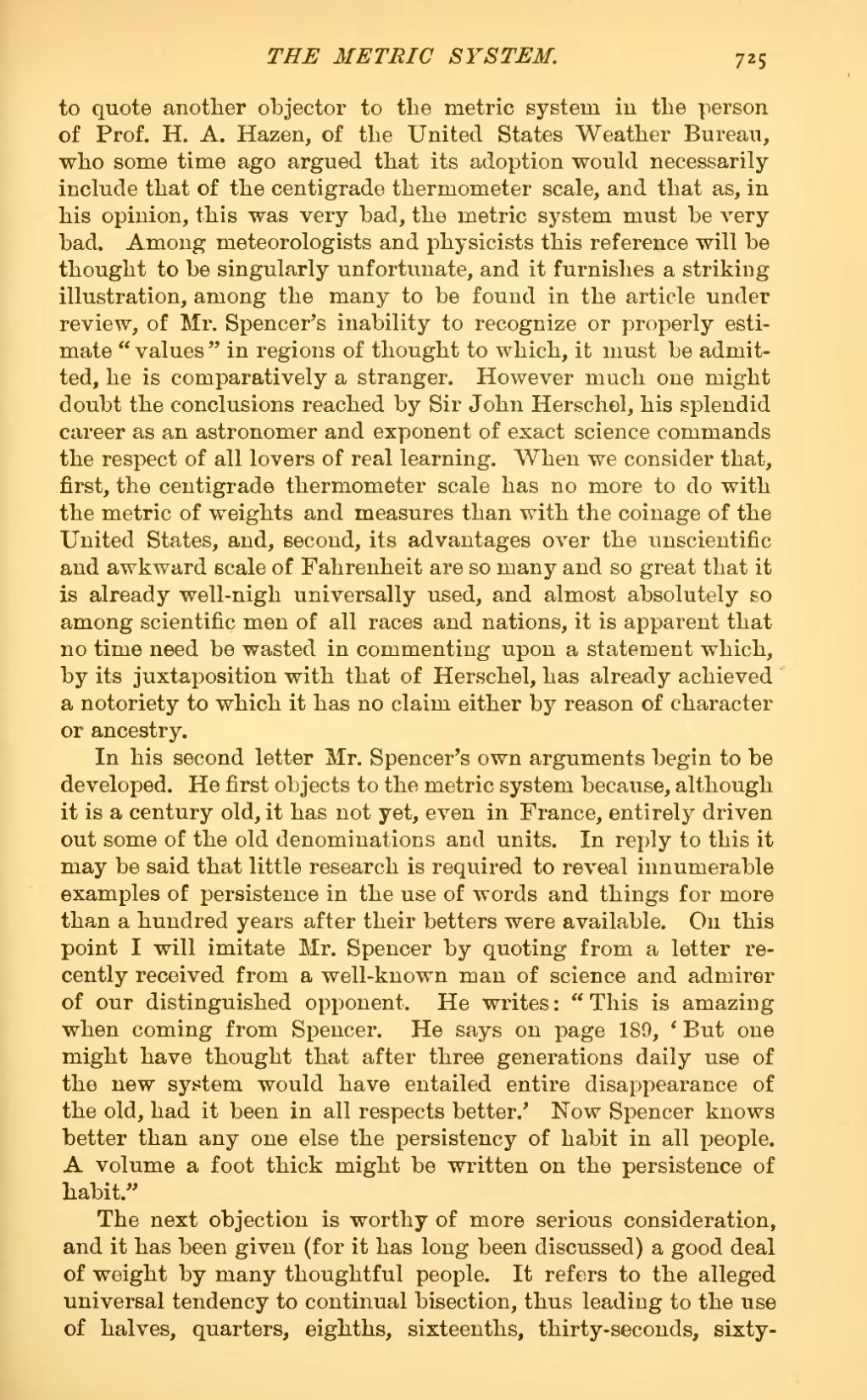to quote another objector to the metric system in the person of Prof. H. A. Hazen, of the United States Weather Bureau, who some time ago argued that its adoption would necessarily include that of the centigrade thermometer scale, and that as, in his opinion, this was very bad, the metric system must be very bad. Among meteorologists and physicists this reference will be thought to be singularly unfortunate, and it furnishes a striking illustration, among the many to be found in the article under review, of Mr. Spencer's inability to recognize or properly estimate "values" in regions of thought to which, it must be admitted, he is comparatively a stranger. However much one might doubt the conclusions reached by Sir John Herschel, his splendid career as an astronomer and exponent of exact science commands the respect of all lovers of real learning. When we consider that, first, the centigrade thermometer scale has no more to do with the metric of weights and measures than with the coinage of the United States, and, second, its advantages over the unscientific and awkward scale of Fahrenheit are so many and so great that it is already well-nigh universally used, and almost absolutely so among scientific men of all races and nations, it is apparent that no time need be wasted in commenting upon a statement which, by its juxtaposition with that of Herschel, has already achieved a notoriety to which it has no claim either by reason of character or ancestry.
In his second letter Mr. Spencer's own arguments begin to be developed. He first objects to the metric system because, although it is a century old, it has not yet, even in France, entirely driven out some of the old denominations and units. In reply to this it may be said that little research is required to reveal innumerable examples of persistence in the use of words and things for more than a hundred years after their betters were available. On this point I will imitate Mr. Spencer by quoting from a letter recently received from a well-known man of science and admirer of our distinguished opponent. He writes: "This is amazing when coming from Spencer. He says on page 189, 'But one might have thought that after three generations daily use of the new system would have entailed entire disappearance of the old, had it been in all respects better.' Now Spencer knows better than any one else the persistency of habit in all people. A volume a foot thick might be written on the persistence of habit."
The next objection is worthy of more serious consideration, and it has been given (for it has long been discussed) a good deal of weight by many thoughtful people. It refers to the alleged universal tendency to continual bisection, thus leading to the use of halves, quarters, eighths, sixteenths, thirty-seconds, sixty--
